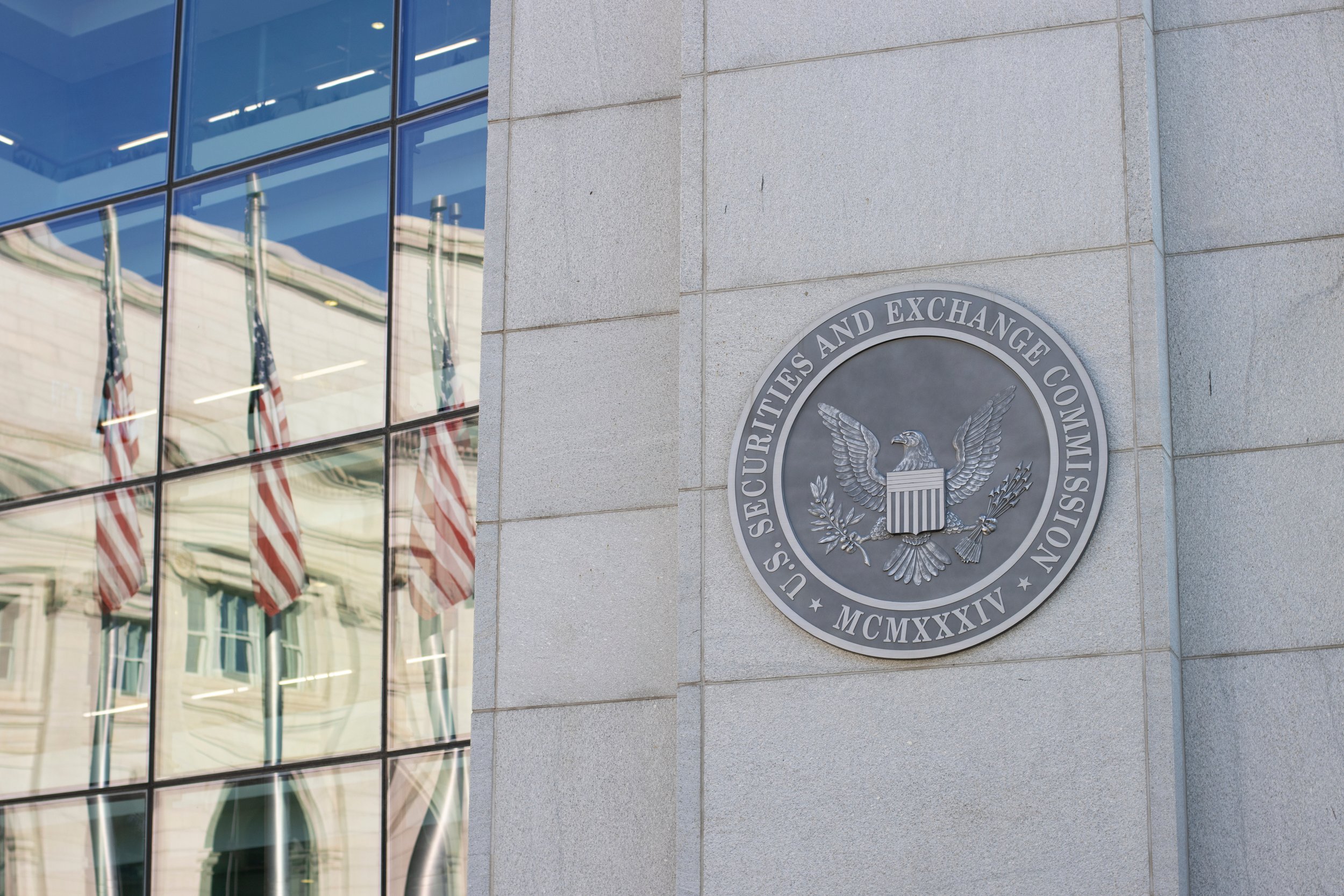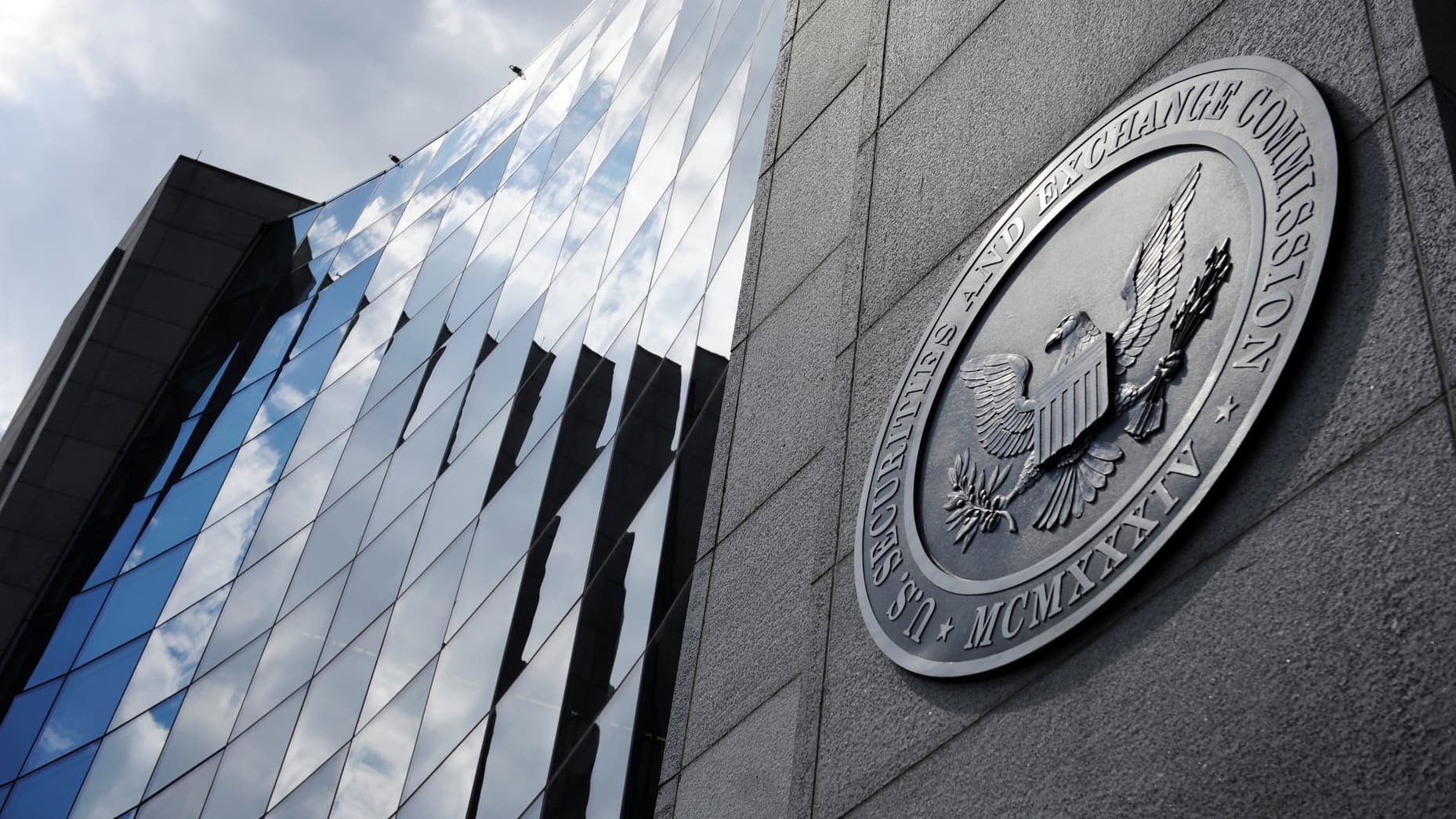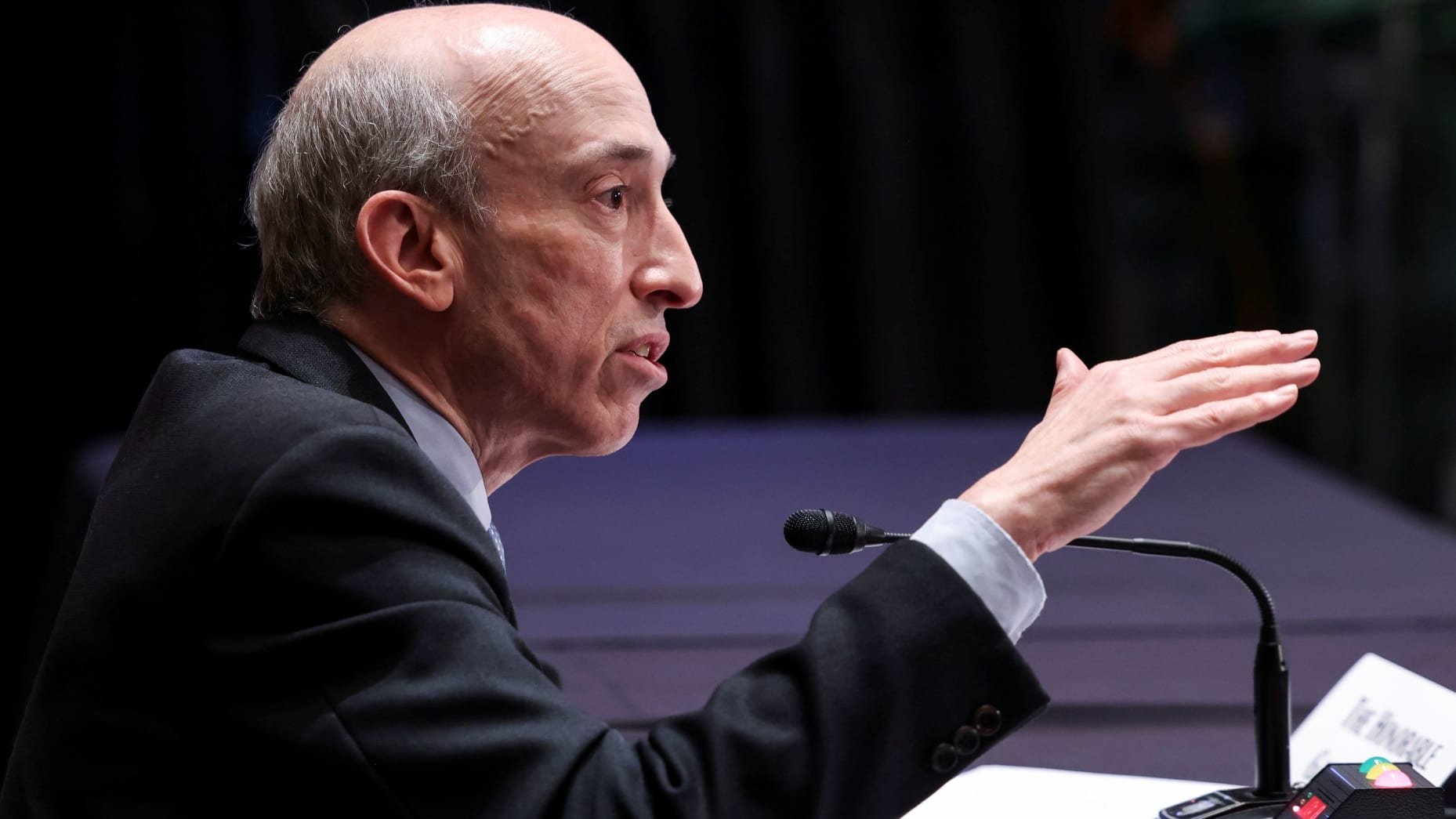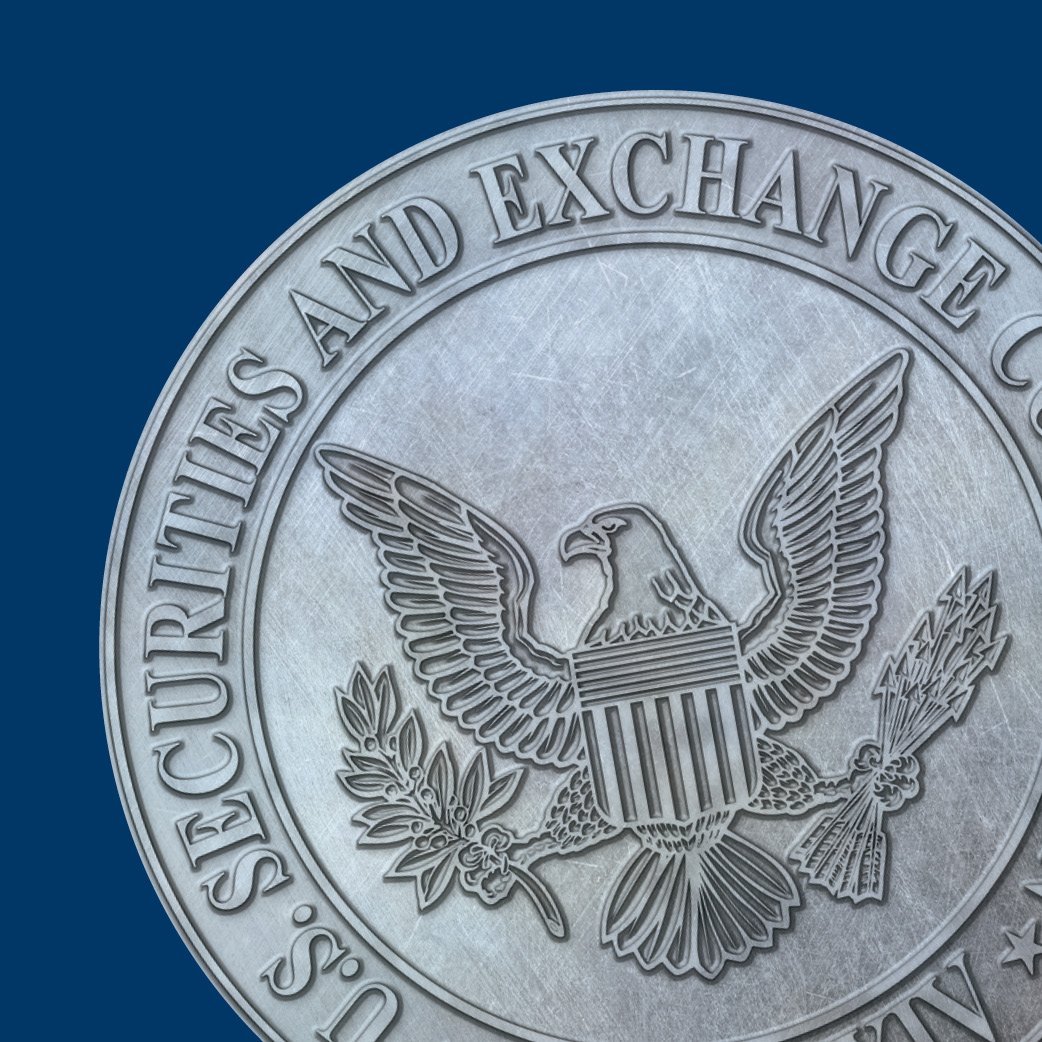
Insights & Regulatory Updates

Tether CEO Acknowledges Vulnerability to U.S. Government Control Amidst Renewed Scrutiny
As Tether, the largest stablecoin issuer in the crypto market, faces increasing regulatory pressure, CEO Paolo Ardoino recently underscored the company’s complex relationship with U.S. authorities in an interview with CoinDesk. Despite Tether's compliance with international sanctions and cooperation with law enforcement, Ardoino acknowledged that the company’s survival ultimately depends on the discretion of U.S. regulators. "If the U.S. wanted to kill us, they can press a button and kill us anywhere,” Ardoino stated, adding that Tether’s approach is not to challenge U.S. authority directly.

SEC Adopts New Rules to Strengthen Risk Management and Resilience of Covered Clearing Agencies
The U.S. Securities and Exchange Commission (SEC) has adopted key rule amendments and introduced a new rule aimed at enhancing the resilience and risk management practices of covered clearing agencies. These measures are designed to bolster the stability of the financial system by mandating intraday margin collection, ensuring the reliability of risk-based margin model inputs, and formalizing recovery and wind-down planning protocols.

Gensler Reaffirms SEC's Regulation-By-Enforcement Approach to Crypto Amidst Industry Debate
Securities and Exchange Commission (SEC) Chair Gary Gensler has once again reiterated his commitment to the agency's ongoing regulation-by-enforcement strategy concerning cryptocurrency. Despite criticism from various sectors of the digital asset industry, Gensler maintains that the SEC’s efforts are firmly grounded in decades of legal precedent, and he intends to continue this approach to provide clarity and protection in the rapidly evolving world of digital assets.

Unpacking the SEC’s 2025 Examination Priorities: What’s on the Horizon for Investment Advisers, Broker-Dealers, and the Financial Sector
With the dawn of a new fiscal year, the U.S. Securities and Exchange Commission’s (SEC) Division of Examinations has unveiled its 2025 examination priorities. This annual roadmap serves as both a warning and a guide for firms navigating the ever-evolving regulatory landscape. The 2025 priorities not only highlight long-standing risk areas like fiduciary duty and cybersecurity, but also shine a spotlight on cutting-edge issues such as artificial intelligence and the growing complexities surrounding crypto assets.

SEC Charges WisdomTree Asset Management with ESG Misstatements and Compliance Failures
The Securities and Exchange Commission (SEC) has charged WisdomTree Asset Management, Inc., a New York-based investment adviser, with failing to adhere to its own investment criteria for funds marketed as incorporating environmental, social, and governance (ESG) factors. The charges stem from the firm’s misstatements and compliance lapses related to the execution of its ESG investment strategies.

SEC Charges North Carolina Resident with Insider Trading in Biopharmaceutical Company
In a recent enforcement action, the Securities and Exchange Commission (SEC) charged Matthew Groom, a North Carolina resident, with insider trading involving the Massachusetts-based biopharmaceutical company, Spero Therapeutics, Inc. According to the SEC’s complaint, Groom used confidential information obtained during his role as an IT consultant for Spero to avoid substantial financial losses ahead of a significant corporate announcement.

SEC Alleges Cumberland DRW Sold $2 Billion in Unregistered Securities
In a new enforcement action that adds fuel to the ongoing regulatory battle over digital assets, the U.S. Securities and Exchange Commission (SEC) has sued Chicago-based crypto trading firm Cumberland DRW. The lawsuit, filed on October 10, 2024, accuses Cumberland of operating as an unregistered broker and handling over $2 billion worth of crypto assets—specifically, tokens like Solana and Polygon—that the SEC claims are unregistered securities.

Start-Up AI and Robotics Company and CEO Face SEC Charges for Investor Fraud
In a recent enforcement action, the Securities and Exchange Commission (SEC) charged Destiny Robotics Corp., a start-up specializing in artificial intelligence (AI) and robotics, along with its founder and CEO, Megi Kavtaradze, for allegedly defrauding investors through false and misleading statements about the company’s operations and products.

Regulatory Update and Recent SEC Actions – October 2024
October 2024 has seen the Securities and Exchange Commission (SEC) continue its aggressive enforcement actions and regulatory updates, targeting a wide range of issues from improper record-keeping to non-compliance with new marketing rules. This month also saw key personnel changes within the SEC, the disbandment of the Climate and ESG Task Force, and the adoption of rules affecting venture capital funds and registered investment companies. Below are the highlights of recent SEC actions and regulatory developments.

SEC Commissioner Mark Uyeda Criticizes Agency’s Crypto Policy as a “Disaster”
In a striking rebuke of the U.S. Securities and Exchange Commission’s (SEC) approach to cryptoc regulation, SEC Commissioner Mark Uyeda publicly criticized the agency's handling of the industry, calling it a "disaster" during a Fox Business panel on October 10. Uyeda's remarks reflect growing internal dissent over how the SEC, under the leadership of Chair Gary Gensler, has enforced crypto policy without providing the much-needed clarity the sector requires.

SEC Charges “Magic Mushroom” Company and Two Individuals in $8 Million Pump-and-Dump
The Securities and Exchange Commission (SEC) has filed charges against Minerco Inc. (former over-the-counter ticker: MINE) and two individuals—Bobby Shumake Japhia and Julius Makiri Jenge—in connection with an alleged multimillion-dollar pump-and-dump scheme that defrauded investors out of approximately $8 million. The SEC's complaint alleges that the defendants generated millions of dollars in illicit profits by manipulating the market for Minerco’s stock through deceptive tactics and false promotions.

SEC Chair Gary Gensler on Crypto: ‘It’s Unlikely This Stuff Is Gonna Be a Currency’
In a recent speech at New York University School of Law, U.S. Securities and Exchange Commission (SEC) Chairman Gary Gensler made headlines with his assertion that cryptocurrencies like Bitcoin (BTC) are unlikely to ever become widely accepted forms of currency. While this statement may have grabbed attention, it largely reiterates what many industry participants already understand: the primary value of crypto assets lies in their utility as a store of value or an investment vehicle, not as a replacement for fiat currencies. Gensler’s comments, while perhaps technically accurate, miss the mark in addressing the real issues facing the crypto industry today.

SEC Announces Departure of Enforcement Director Gurbir S. Grewal; Sanjay Wadhwa Named Acting Director, Sam Waldon Named Acting Deputy Director
On October 2, 2024, the Securities and Exchange Commission (SEC) announced the departure of Gurbir S. Grewal, Director of the Division of Enforcement, effective October 11, 2024. Following his departure, Sanjay Wadhwa, the current Deputy Director of the Division, will step into the role of Acting Director. Meanwhile, Sam Waldon, Chief Counsel of the Division, will assume the position of Acting Deputy Director.

Key Takeaways from SEC Fraud Charges Against the Kubient Officers
In early October, the Securities and Exchange Commission (SEC) filed accounting fraud charges in the U.S. District Court for the Southern District of New York against the CEO, CFO, and Audit Committee Chair of Kubient, Inc. Kubient, a technology company that claims to employ artificial intelligence to detect fraud in digital advertising, is now at the center of an enforcement action highlighting serious governance failures at the highest levels of management.

SEC Updates Dollar Threshold for Qualifying Venture Capital Funds: What It Means for the Industry
On August 22, 2024, the Securities and Exchange Commission (SEC) adopted a new rule that updates the dollar threshold for a fund to be considered a "qualifying venture capital fund" under the Investment Company Act of 1940. The rule raises the threshold from $10 million to $12 million in aggregate capital contributions and uncalled committed capital, reflecting inflation adjustments mandated by the Economic Growth, Regulatory Relief, and Consumer Protection Act of 2018.

The Aftermath of PFAR’s Demise: Navigating Private Equity Compliance in a New Regulatory Landscape
The recent vacating of the Securities and Exchange Commission’s (SEC) Private Fund Adviser Rules (PFAR) by the Fifth Circuit Court has sent ripples through the private equity (PE) industry. What was initially viewed as a burdensome regulatory overhaul for PE firms is now seen as a moment of reprieve, but also a pivotal point that raises larger questions about the future of SEC oversight. While many private equity firms are breathing a sigh of relief, this regulatory pause is unlikely to signal the end of increased scrutiny from the SEC. In fact, firms may need to prepare for a more nuanced and evolving approach to compliance in the wake of PFAR’s collapse.

Untangling the SEC's Web: Regulatory Challenges Facing Crypto and Digital Assets
Under the leadership of Chairman Gary Gensler, the Securities and Exchange Commission (SEC) has adopted an approach to digital assets that some have described as "enforce first, make rules never." This strategy, while potentially effective in areas where clear guidance exists, has left digital asset market participants in the United States facing significant regulatory uncertainty. Without clear rules, the SEC’s aggressive enforcement tactics have had the effect of stifling innovation and driving businesses overseas. This article explores the key issues in the SEC’s current stance on digital assets and the need for a more thoughtful and predictable regulatory framework.

Strengthening Whistleblower Protections: SEC Enforcement and Key Actions for Companies
On September 9, 2024, the U.S. Securities and Exchange Commission (SEC) announced settlements with seven public companies for violations of whistleblower protections under Rule 21F-17 of the Securities Exchange Act of 1934. This latest enforcement action underscores the SEC's growing commitment to ensuring whistleblowers can report potential securities violations without fear of retaliation or obstruction. Companies are now called to reassess their policies to comply with these important protections.

SEC's Push for Sanctions Against Elon Musk: Implications for Corporate Governance
On September 20, 2024, the U.S. Securities and Exchange Commission (SEC) announced its intention to seek sanctions against Elon Musk, the CEO of Tesla and SpaceX and owner of X (formerly Twitter). This move comes in light of Musk’s failure to comply with a court order to testify regarding his $44 billion acquisition of Twitter. The implications of this case extend beyond Musk himself, raising significant questions about corporate governance, transparency, and the responsibilities of high-profile executives.

Broker-Dealers vs. Unregistered Finders in Capital Raising
Determining whether an intermediary operates as a finder or an unregistered broker-dealer is a nuanced and fact-specific inquiry that can present significant challenges. For unwary entrepreneurs, corporate executives, and equity fund sponsors, the stakes are high; engaging a third party that inadvertently crosses the line into broker-dealer territory can result in serious regulatory repercussions.
